Assad family’s iron-grip rule on Syria toppled as insurgents take control of Damascus
Assad, who has not spoken in public since the lightning rebel advance, has fled Damascus, reportedly to Moscow
The Assad regime’s brutal half-century-long grip on Syria has come to an end, in a stunning defeat by opposition insurgents who seized control of Damascus on Sunday after more than 13 years of civil war.
In extraordinary scenes, jubilant crowds took to the streets waving a revolutionary flag and shouting “Freedom”, as the capital was littered with the discarded uniforms of government forces.
Families of relatives left to rot for years in the regime’s notorious prisons waited anxiously for news of loved ones as videos showed fighters freeing thousands from jails across the country.
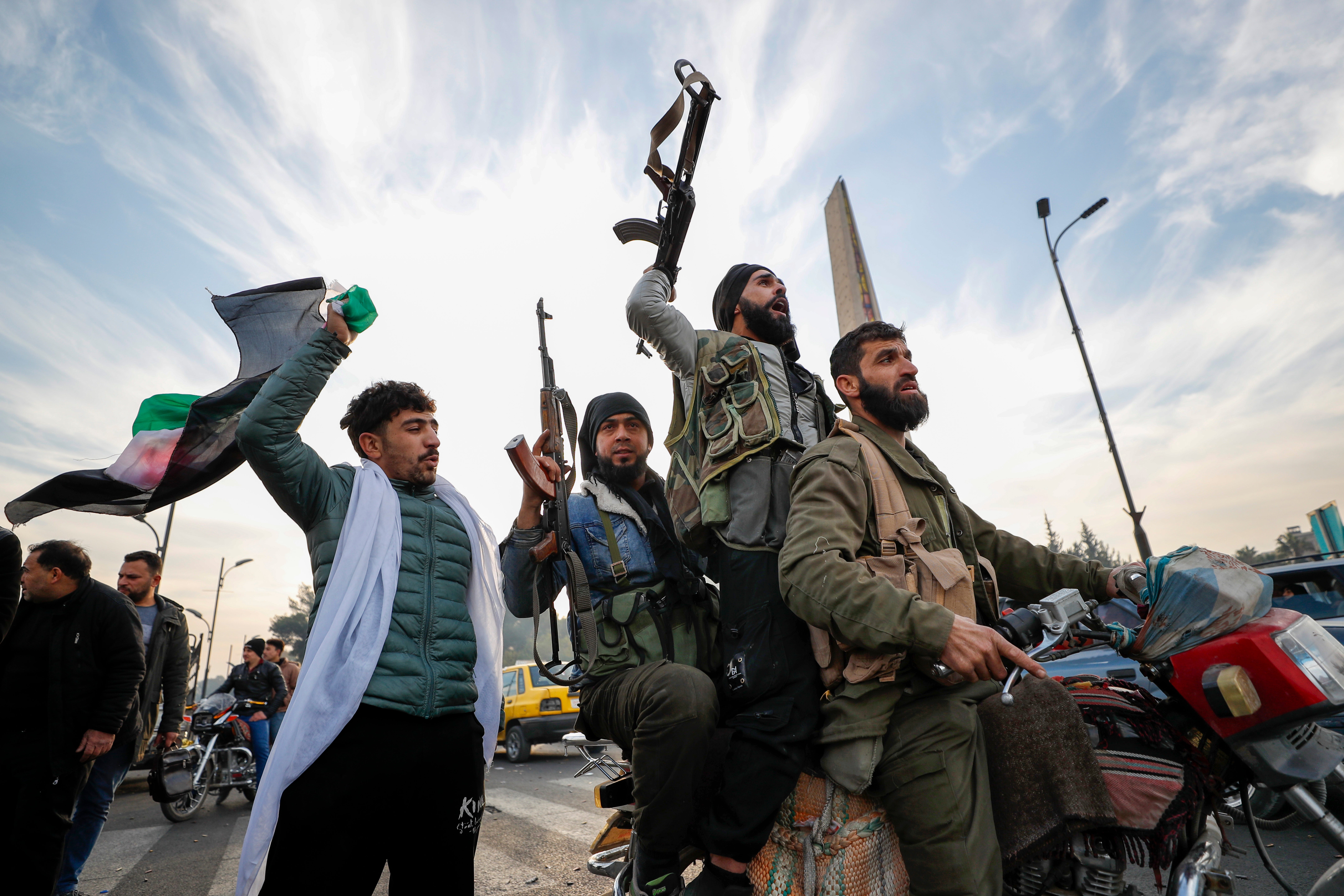
Others gleefully ransacked the presidential palace and residence, rifling through luxury designer items belonging to the long-term dictator, after President Bashar al-Assad, along with his wife Asmaa and their two children, as well as top officials, vanished.
Russia, a close ally that has propped up the regime for years and will see this as a major blow, said Assad left the country after negotiations with rebel groups and had given instructions to transfer power peacefully. Late on Sunday, Russian state media said Assad and his family had been granted asylum and were in Moscow.
World leaders including Sir Keir Starmer welcomed the end of the Assad regime, albeit amid concerns about what comes next for the war-torn region.
Assad’s sudden overthrow at the hands of a Turkish-backed revolt with roots in jihadist Sunni Islam, limits Iran’s ability to spread weapons to its allies and could cost Russia its Mediterranean naval base. It also paves the way for millions of refugees scattered for more than a decade in camps across Turkey, Lebanon and Jordan to finally return home.
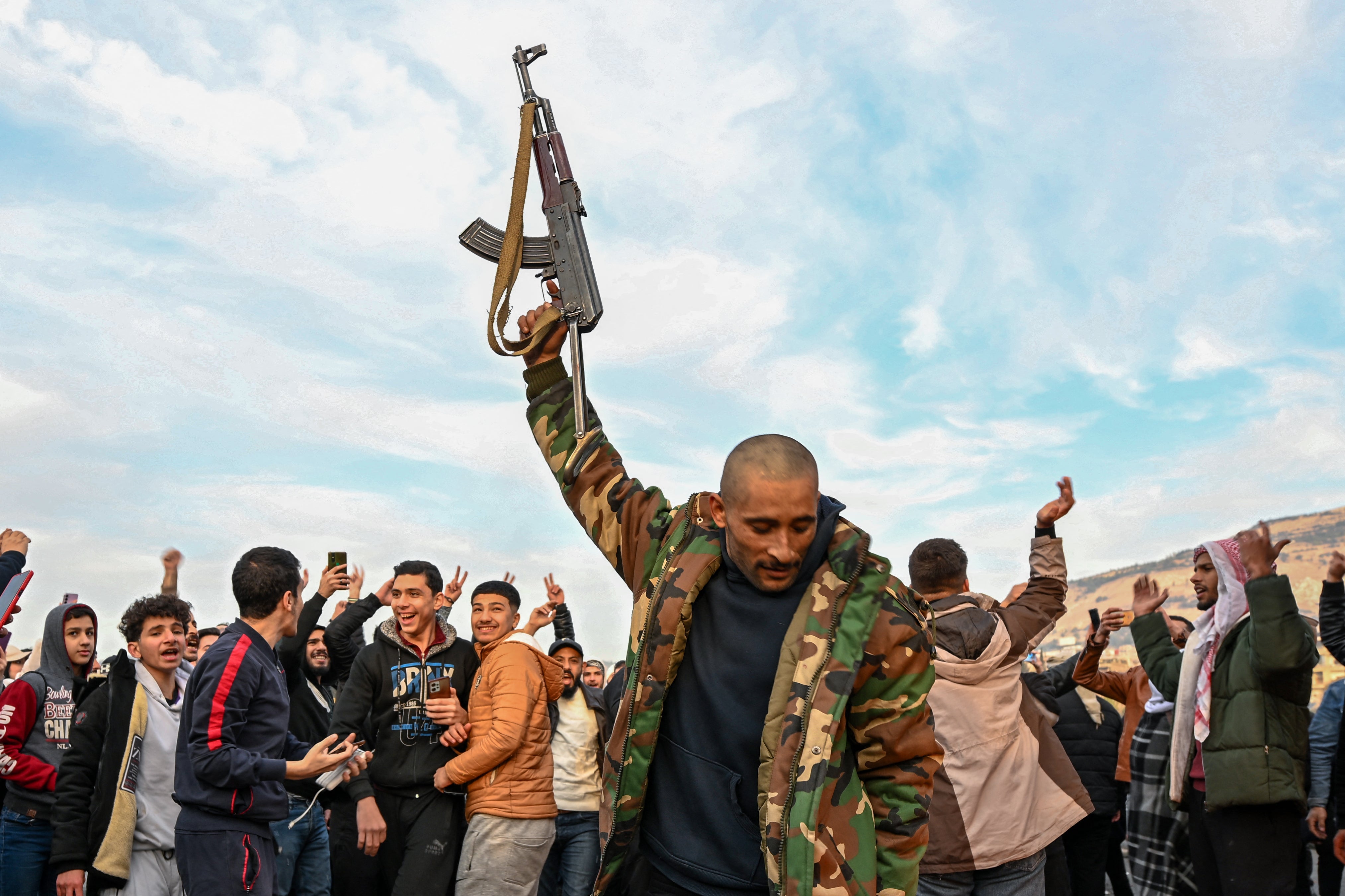
For Syrians, it brought a sudden unexpected end to a war that had been in deep freeze for years, with hundreds of thousands already dead, cities pounded to dust, an economy hollowed out by global sanctions and no resolution in sight.
Families who had been cowering in their homes and fearing more bloody battles ahead, emerged on Sunday to celebrate.
“It was one of the smoothest transitions ever,” Mariam told The Independent from a town on the outskirts of the capital. “We thought there would be blood soaking the streets, but no one wanted to fight for Assad any more. Finally, Syrians can be proud of being Syrian.”
“I can’t stop crying,” added Ahmed, who owns a clothes shop also in a town near the capital. “I can’t believe he has been defeated.”
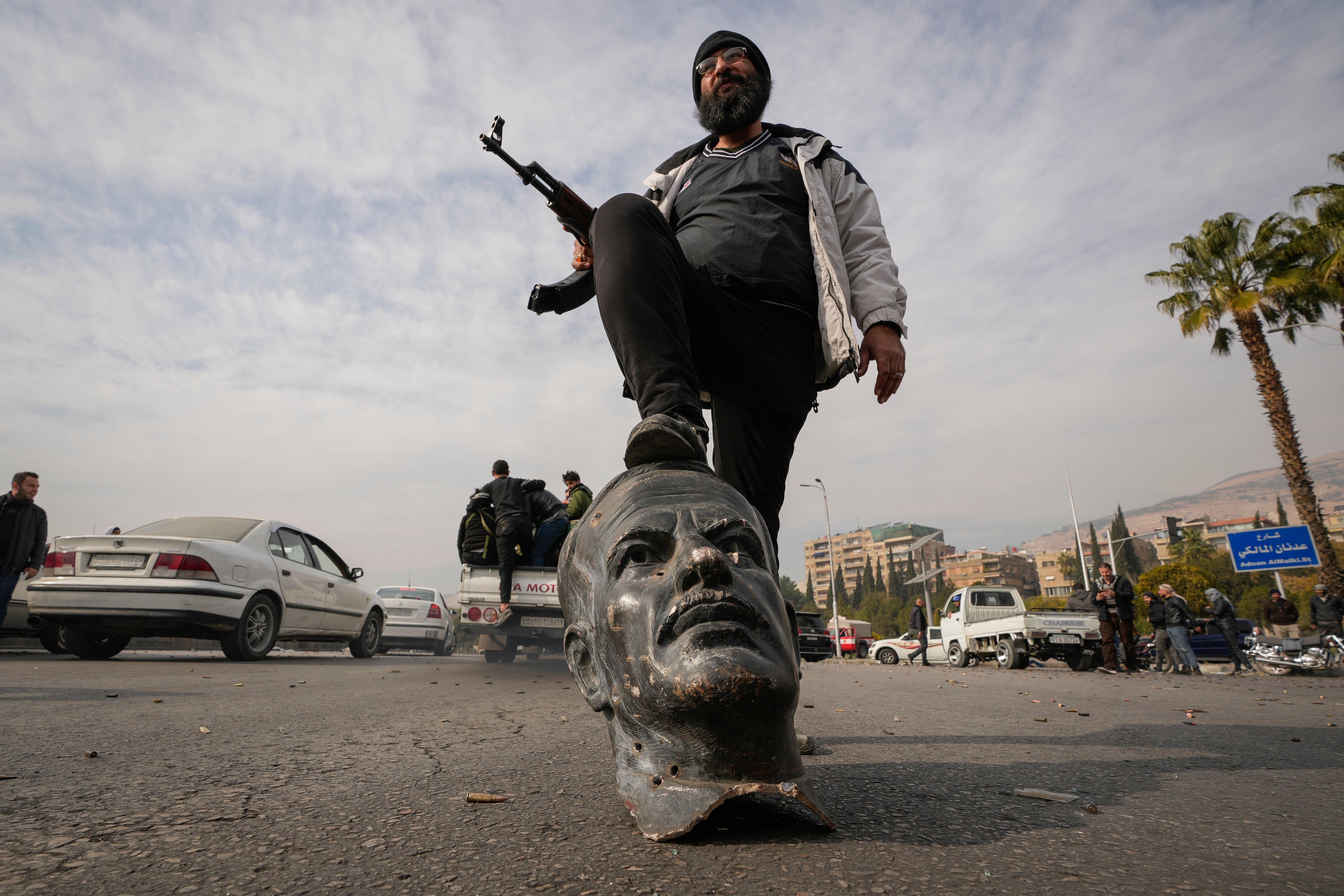
At the notorious Sadnaya prison just north of Damascus, where rebels freed inmates, many of them politican detainees, Zakaria Al-Ashara, who had been jailed for five years, spoke of tasting freedom for the first time.
“It’s an indescribable beautiful feeling. I couldn’t believe it when I got out. I dreamed of this moment and imagined it every day,” he told The Independent.
“Every moment was a nightmare. Yet, despite everything, I clung to the dream of freedom and never stopped praying.”
Outside of the prison, and in nearby cities, family members who knew their loved ones were at some point transferred to Sadnaya waited anxiously for any news - as more and more people were filmed escaping.
Fakhria, whose son Abdo Sahwar, a father of two, was arrested 10 years ago, said: “I had lost hope, but now my heart is racing with tension. I don’t know if I’ll find him alive. If I see him, I might die of joy.”
A fighter among the opposition ranks, who fought in the battles against regime forces in Idlib, Aleppo, Hama and Homs over the past week, told The Independent the battle against Assad had been one “for everyone”. He said he hoped the country’s myriad factions could now come together.
“We are fighting for Syria for everyone: Muslims, Christians, Alawites, Druze – we are fighting for a Syria that is for all,” he added.
The Islamist group Hayat Tahrir al-Sham (HTS), the largest and best-organised of the rebel outfits, said Syria was now free from the “tyrant” Assad.
The rebels said they had entered the capital with no sign of army deployments. Thousands in cars and on foot congregated at a main square in Damascus waving and chanting after half a century of Assad family rule.
Syria’s army command notified officers that Assad’s rule had ended, but later added that it was continuing operations against “terrorist groups” in the key cities of Hama and Homs and in the Deraa countryside.
Assad, who has not spoken in public since the sudden rebel advance a week ago, has fled Damascus, the Russian foreign ministry said.
His government – known for generations as heading one of the harshest police states in the entire Middle East with hundreds of thousands of political prisoners in its gulag – melted away overnight.
Leading rebel commander Abu Mohammed al-Golani said there was no room for turning back and said the group was determined to continue the path they started in 2011 during the Arab Spring uprisings.
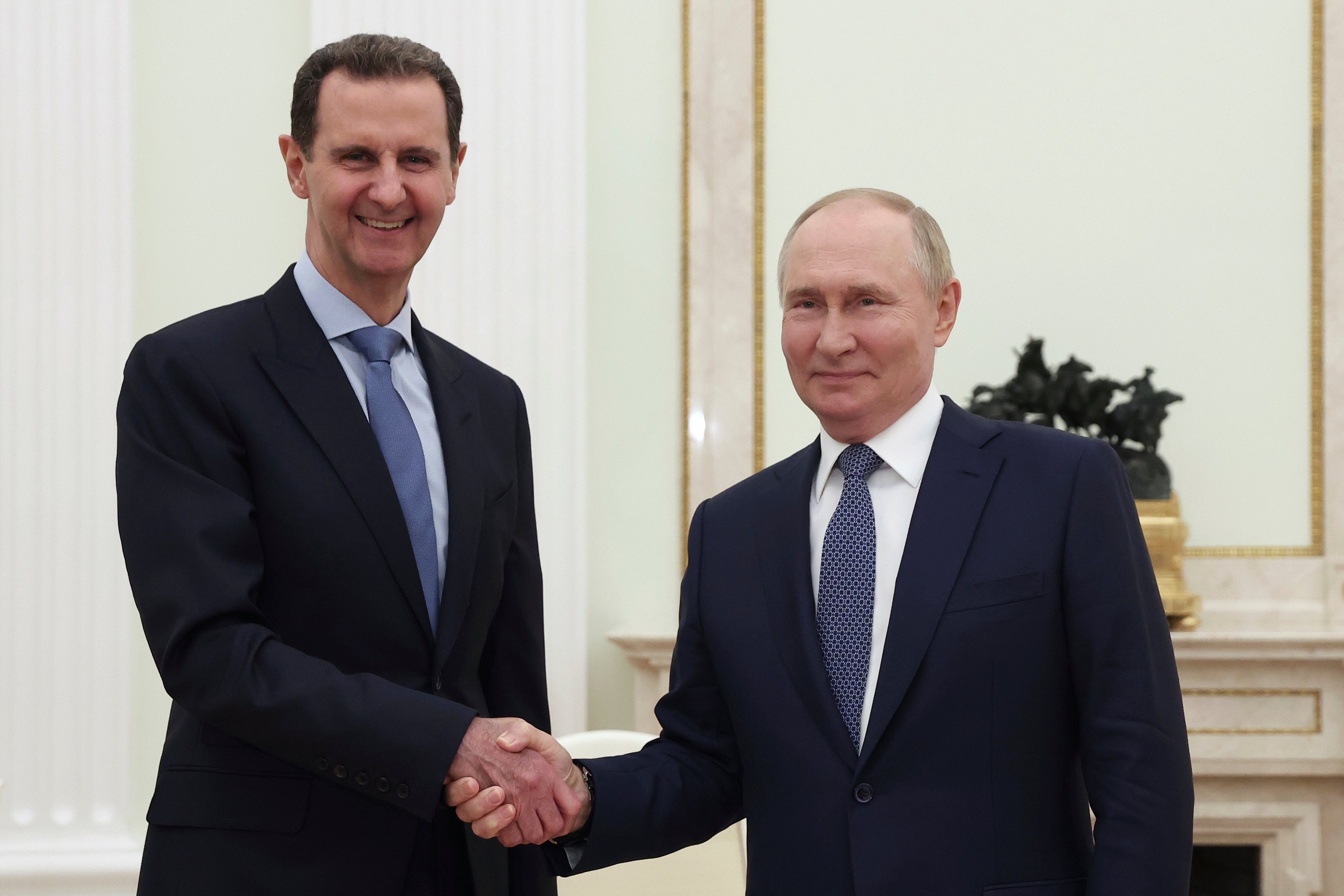
Rebel Commander Hassan Abdul-Ghani said “In the midst of victory” they should not forget those who died fighting “and paved the way for us towards the capital”.
The insurgents also dealt a major blow to the influence of Russia and Iran in the heart of the region – key allies who propped up Assad during critical periods in the conflict.
Since the rebels swept into Aleppo a week ago, government defences have crumbled across the country as insurgents seized a string of major cities and rose up in places where the rebellion had long seemed over.
After years locked behind frozen front lines, the insurgents burst out of their northwestern stronghold in Idlib and pushed the swiftest battlefield advance by either side since a street uprising against President Assad mushroomed into civil war more than a decade ago.
The collapse followed a seismic shift in the balance of power in the Middle East after the leadership of Lebanon’s Iran-backed militant Hezbollah, a linchpin of Assad’s battlefield force, were killed over the past two months. Russia, Assad’s other key ally, has been embroiled in a ruinous war in Ukraine.
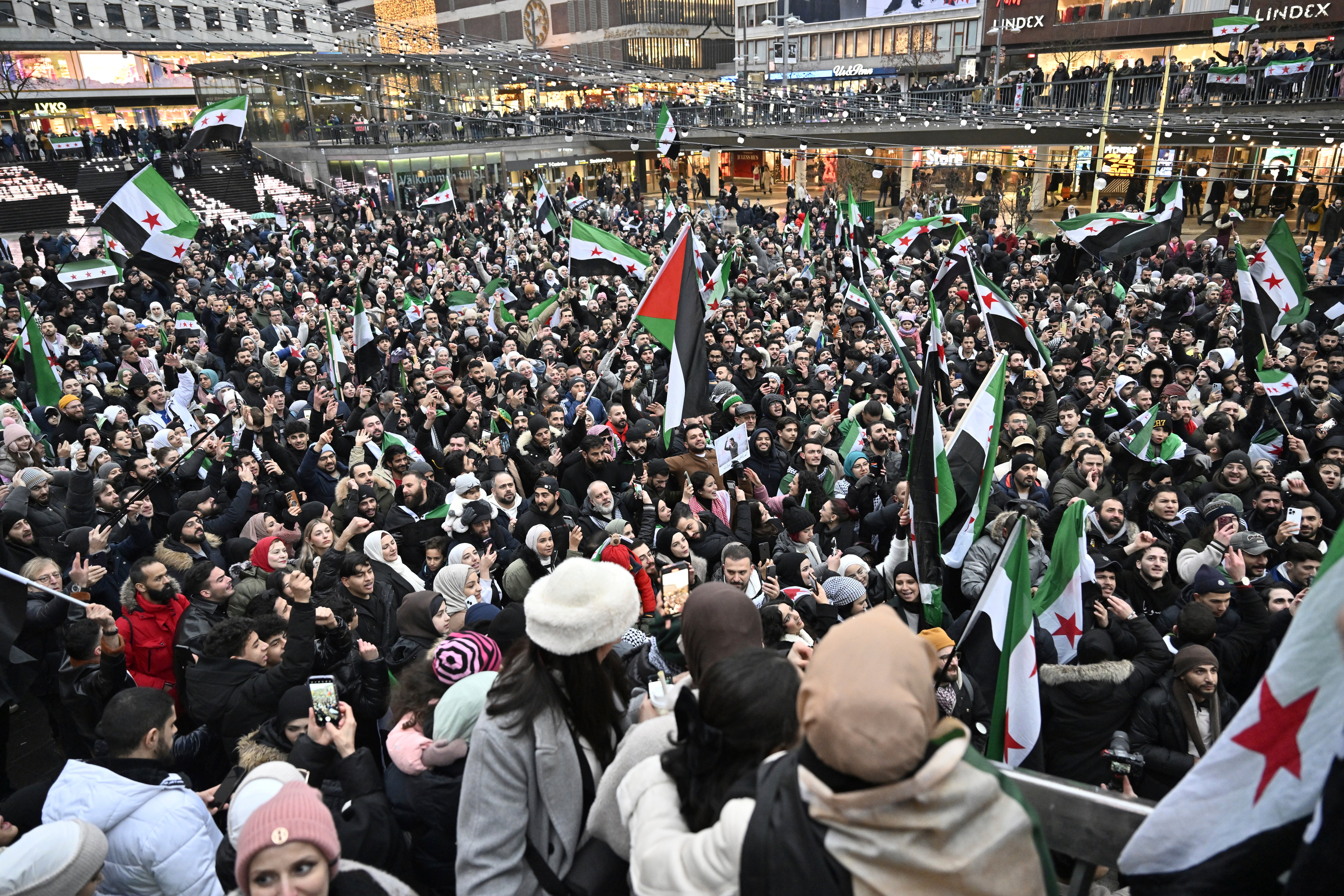
Emma Beals, a non-resident fellow of the Middle East Institute and a leading Syria expert, said that while geopolitics played a major role in the regime overthrow, “ultimately this is a phenomenal set of events caused by Syrians themselves”.
“It was a perfect storm, where everything aligns,” she said. “But at the end of the day, people are tired, they want something new.
“In regime areas there was an economic collapse, a huge loss of life in army and other social shocks. Even after fighting ended, people saw no benefits. Instead they saw regime cronies getting the contracts and getting wealthier as they got poorer.”
But she warned that the “hard work starts tomorrow” and that trying to bring together so many warring factions in such a devastated country will be a major challenge.
“The huge flip in power and the speed with which this happened is going to make the security situation of the next weeks, and the provision of services alongside that, hard,” she explained. “There is also the discussion about who’s in the transitional government, [and] what the next steps are.”
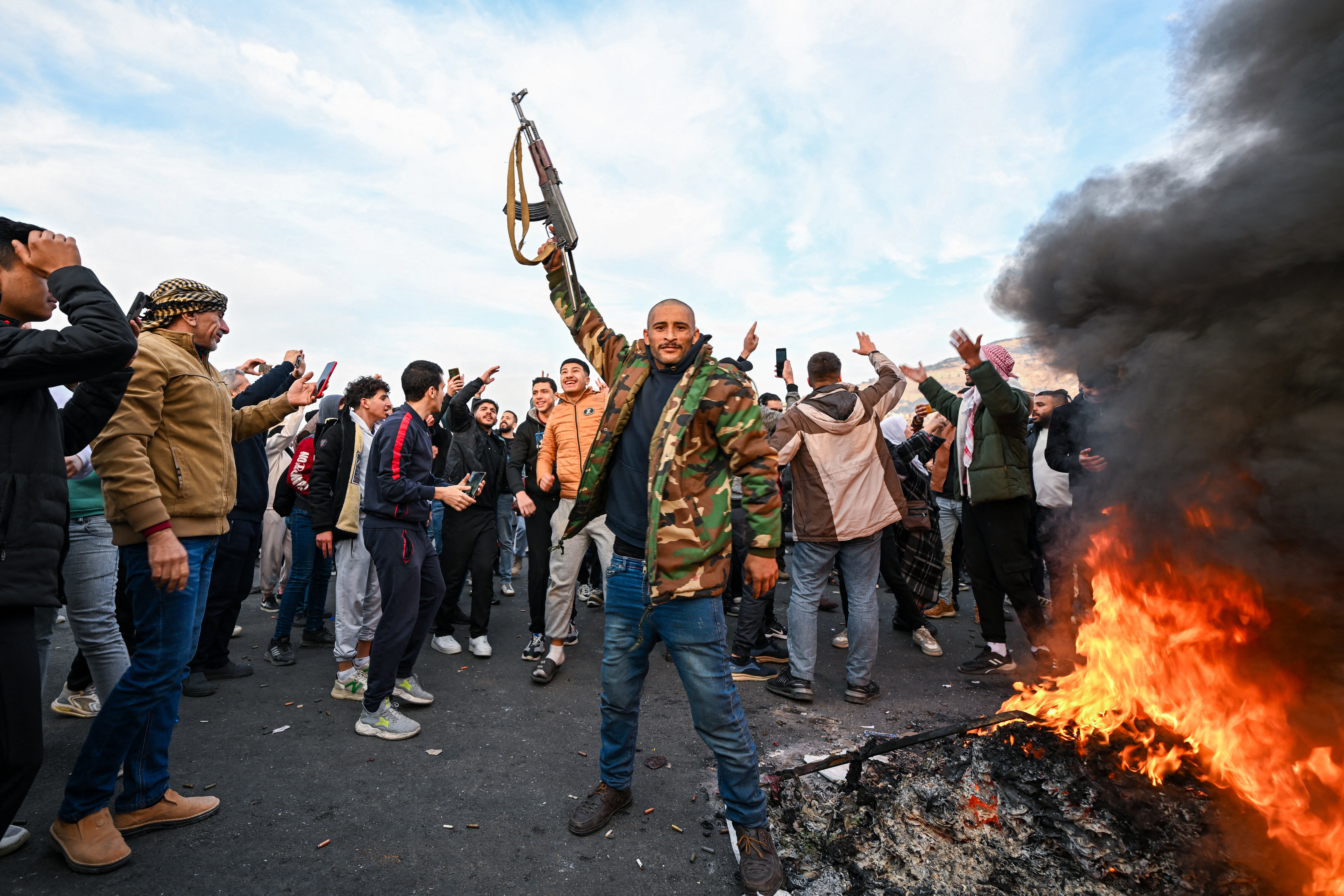
When the celebrations fade, Syria’s new leaders will face the daunting task of trying to deliver stability to a diverse country with competing factions that will need billions of dollars in aid and investments to rebuild.
The Syrian rebel coalition, for its part, said it is continuing work to complete the transfer of power to a transitional governing body with full executive powers.
“The great Syrian revolution has moved from the stage of struggle to overthrow the Assad regime to the struggle to build a Syria together that befits the sacrifices of its people,” the rebels said in a statement.
But there were already clashes erupting with other factions. The Kurdish-led Syrian Democratic Forces, who control the northeast of the country and are backed by the United States, said they were already locked in battles with Turkish-backed opposition forces over the northwestern city of Manbij.
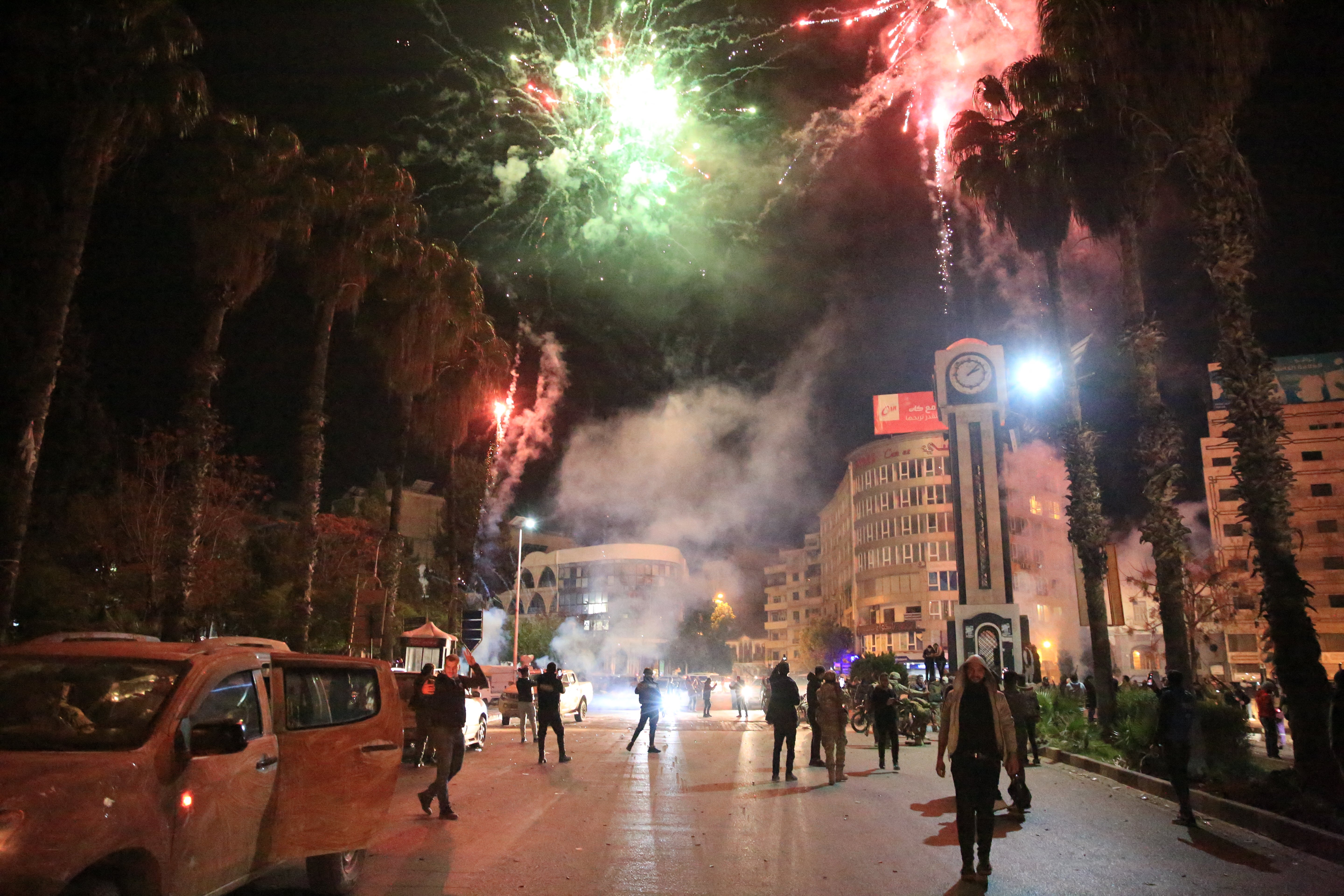
The pace of events has stunned Arab capitals and raised fears of a new wave of regional instability.
It marks a turning point for Syria, shattered by years of war which has turned cities to rubble, killed hundreds of thousands of people, and forced millions abroad as refugees.
The United States will continue to maintain its presence in eastern Syria and will take measures necessary to prevent a resurgence of the Islamic State, deputy assistant secretary of defence for the Middle East, Daniel Shapiro, said.
HTS, which spearheaded the rebel advances across western Syria, was formerly an al-Qaeda affiliate known as the Nusra Front until its leader, Abu Mohammed al-Golani, severed ties with the global jihadist movement in 2016.
Golani’s outfit is the country’s strongest rebel group and some Syrians remain fearful it will impose draconian Islamist rule or instigate reprisals.
Even after Assad had fled, Israel continued to strike targets associated with his government and its Iranian-backed allies, including one in Damascus where Israel had previously accused Iran of developing missiles. Benjamin Netanyahu said the toppling of Assad could make it easier for Israel to reach a ceasefire deal to free hostages in Gaza.
The UK said it welcomed the fall of Assad’s “barbaric regime”.
“The Syrian people have suffered under Assad’s barbaric regime for too long and we welcome his departure,” Sir Keir said in a statement on Sunday. “Our focus is now on ensuring a political solution prevails, and peace and stability is restored.
“We call on all sides to protect civilians and minorities, and ensure essential aid can reach the most vulnerable in the coming hours and days.”
Asked whether he would be wiling to deal with HTS, Sir Keir said: “It’s very early days at the moment.
“We do need a political solution, and that’s what we are talking to regional allies about. It is a good thing that Assad has gone, a very good thing for the Syrian people.”
Additional reporting by Rajaai Bourhan
Join our commenting forum
Join thought-provoking conversations, follow other Independent readers and see their replies
Comments
Bookmark popover
Removed from bookmarks